SUMMARY
This is AI generated summarization, which may have errors. For context, always refer to the full article.

MANILA, Philippines – The judgmental view of healthcare workers to young people having sex is the “biggest issue” affecting young people’s access to contraceptives and reproductive health (RH) services, a Palawan-based nongovernmental organization (NGO) said in a Senate hearing on Tuesday, February 7.
The issue of judgment, also referred to as provider bias, was taken up in a Senate hearing tackling three bills that aim to address adolescent pregnancies in the Philippines.
“Roughly half of the health care workers we work with in Palawan do not approve of young people having sex, so when youth try to access services, they are scolded, shamed, and denied services,” said Roots of Health executive director Amina Evangelista-Swanepoel.
“Therefore, we urge the protection of adolescents’ rights to access service with specific legislation that will supersede previous age restrictions to accessing these,” she added.
The current RH law says that no person should be denied information and access to family planning assistance, except for minors who need to ask their parents’ permission before availing these.
The original provision in the law exempted minors who already have children or had a miscarriage, but the Supreme Court struck down this exception in 2014.
Evangelista-Swanepoel said that, at the minimum, the parental consent clause in the RH law should be lowered to youth under 15 years old instead of 18. She pointed out that the Philippine law on HIV/AIDS allows for individuals aged 15 and above to get tested for the disease without the consent of their parents or guardians.
Leila Joudane, the Philippines’ country representative in the United Nations Population Fund, echoed the call to address the parental consent clause.
“It is important that adolescents have access directly to the health services so for that, they also need access to health insurance. That is something that I hope will be in your bill as well,” said Joudane.
Advocates have long raised the issue of young people denied reproductive services due to the judgment of healthcare providers.
Senator Risa Hontiveros, one of the bills’ principal authors, flagged the increasing number of girls aged 10 to 14 getting pregnant. In 2020, the Philippine Statistics Authority recorded 2,113 births among girls aged 10 to 14. In 2021, the Department of Health reported 2,299 births in the same age group.
Hontiveros, in her opening statement, said that 386,000 Filipino girls, or 6.8% of girls aged 15 to 19, began childbearing in 2021.
“While the trend for teen pregnancies among girls aged 15 to 19 is declining, a recent worrisome trend among girls aged 10 to 14 has been emerging. Nakakabahala na dumadami ang mga ganitong kabataang babae na nabubuntis ng wala sa panahon at ng walang suporta,” Hontiveros said. (It is worrisome that there are increasing cases of girls this young who are getting untimely pregnancies without support.)
Local efforts
Hontiveros said there were certain local government units (LGUs), such as in Naga, Tuguegarao, and Quezon City, that have taken steps to combat adolescent pregnancies through ordinances and programs.
“The initiatives of these LGUs demonstrate that local leaders see an urgent need to address the concerns of adolescent parents. Alam ng mga LGU ang realidad sa mga komunidad kaya’t kailangan narin masuportahan ito ng isang national policy,” Hontiveros said. (The LGUs know the reality in the communities, which is why we need to support this with a national policy.)
Meanwhile, in Palawan, Evangelista-Swanepoel noted the “enthusiasm” of Sanggunian Kabataan (SK) or youth councils in anti-teen preganancy programs. The three Senate bills mandate SKs to develop interventions in arresting causes of adolescent pregnancies at the community level.
Roots of Health said it has trained 1,500 SKs in designing interventions that promote healthy relationships and good sexual and reproductive health in a bid to prevent teen pregnancies and transmission of sexually transmitted diseases. SKs also play a part in training barangay health center staff on providing youth-friendly services, they said.
Evangelista-Swanepoel said that these efforts with the SKs should be “scaled up.” She said that many health centers do not work with SKs in providing services, which is a “missed opportunity.”
Comprehensive sex education
During the Tuesday Senate hearing, teen parent Carmela Bondoc said young moms like her should receive culturally sensitive, age- and development-appropriate adolescent and health education.
“Edukasyon na tamang gagabay sa amin. Impormasyon na galing sa mga health professionals. Impormasyong tama. Impormasyong hindi ipagkakait sa amin ng dahil sa panghuhusga. Edukasyong nagbibigay ng dignidad sa aming desisyon para sa sarili,” she said.
(Education that will guide us, and information from health professionals. Correct information. Information that will not be withheld from us because of judgment, and education that gives us dignity to make our own decisions is what we need.)
More than a decade since the RH law was passed, Roots of Health said that there is still a lack of credible information on sexuality and reproductive health (SRH) among 65,000 respondents they gathered data from. The RH law of 2012 mandates comprehensive sexuality education (CSE) to be rolled out in schools.
The NGO’s data from 2012 show low levels of SRH knowledge among young people. For instance, it found that 70% of high school students believed that jumping up and down is an effective way to avoid pregnancy, while some 79% believed that withdrawal is an effective method of pregnancy prevention.
“Teachers have told us repeatedly how grateful they are for our support because they are not equipped to teach CSE themselves. An important step in the rollout of CSE in schools is the training of CSE coordinators who can train and support other teachers. The Department of Education (DepEd) must allocate funds to ensure this capacity-building training,” said Evangelista-Swanepoel.
Joudane also highlighted the need to have a “very targeted” CSE program for adolescents with disabilities, for lesbian, gay, bisexual, transgender, queer+ (LGBTQ+), young people, and out-of-school youth.
Former president Rodrigo Duterte declared the prevention of teenage pregnancies a national priority in June 2021. – Rappler.com
Add a comment
How does this make you feel?
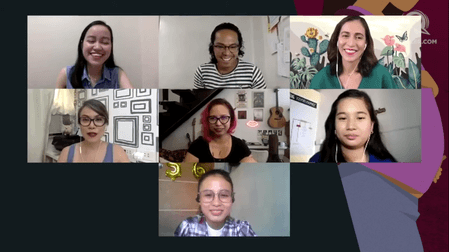
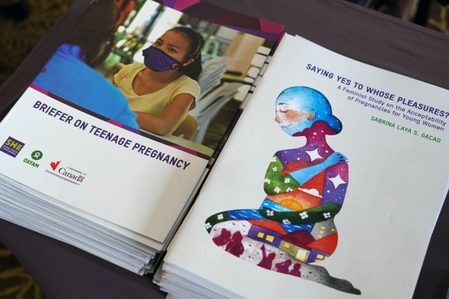
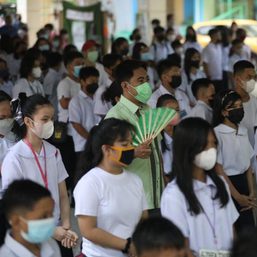
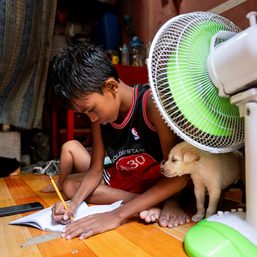

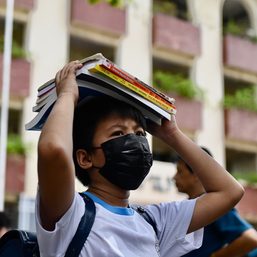

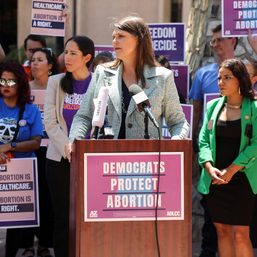



![[Dash of SAS] Making abortion a constitutional right](https://www.rappler.com/tachyon/2024/03/Its_true_-_Flickr_-_Josh_Parrish-1.jpg?resize=257%2C257&crop=125px%2C0px%2C768px%2C768px)
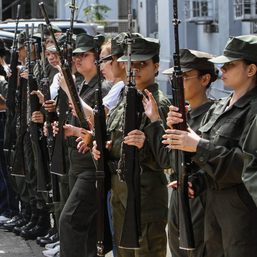

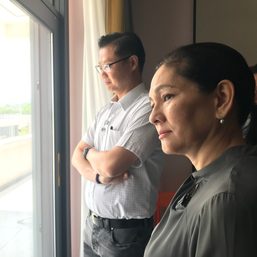





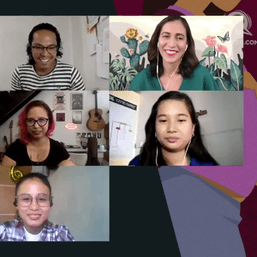
There are no comments yet. Add your comment to start the conversation.